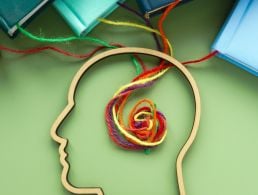The majority of Irish people believe that schools are failing in the digital education stakes.
In a damning new survey, Irish citizens have slammed the country’s education system as inadequate when it comes to teaching kids about 21st-century digital skills.
The study – carried out by printing giant Ricoh, which is currently in the process of doubling the size of its Irish business – found that just 29pc of Irish people believe schools are equipping children with the necessary skills for the digital era.
‘The younger generations in today’s workforce want to have access to the latest technology and use it in a way that works best for them and that enriches their work experience’
– CHAS MOLONEY
Only a third feel that Irish schools have access to the modern technologies that will make students digitally proficient.
However, the survey did find that confidence in Irish third-level education is higher, with 64pc believing that graduates are digitally prepared to enter the workplace.
Nevertheless, 50pc of respondents believe that the Irish education system lags behind its European counterparts when it comes to the provision of digital technology skills and training. Just 22pc are confident that it doesn’t.
“It’s no exaggeration to say that digital skills are becoming as essential as reading and writing, and our education bodies need to reflect that in their syllabuses,” said Chas Moloney, director of Ricoh Ireland and UK.
“Children need to learn digital skills from a very young age and that must progress right through their journey in the education system. These are the people that are going to be driving our economy in years to come and we must ensure that they have the skills they need to do that.”
“There are so many systems and tools available today that can not only help to develop students’ digital fluency, but also enhance their overall learning experience. Governments, schools and third-level institutions therefore need to ensure that they are encouraging, and investing in, those technologies in order to make a significant contribution to our students’ future and the future of our economy,” said Moloney.
The survey found that there is pressure on employers to do more when it comes to digital training.
Just 49pc of office workers believe that their employer is doing enough to develop their digital skills.
This is a worrying statistic when 41pc of respondents said they would leave their job for another if it offered better digital skills development opportunities. This is despite the fact that more than two-thirds (70pc) are confident that their employer understands the role technology can play in employee wellbeing.
Digital transformation makes employees fear for job security
Chas Moloney, director, Ricoh Ireland and UK. Image: Philip Leonard
Ricoh’s research also found that digital transformation is making Irish office workers worry about job security.
One in five (19pc) of respondents said they are concerned that their job could come into competition with service automation or artificial intelligence technologies.
“The younger generations in today’s workforce want to have access to the latest technology and use it in a way that works best for them and that enriches their work experience,” Moloney explained.
“While employers do understand that technology plays a major role in employee satisfaction and wellbeing, they seem to be integrating it into the workforce with trepidation.
“Increasingly, Ireland is being viewed worldwide as a tech hub, but, in order for businesses to be competitive in the digital era, they must start by making changes from within their organisation.”




